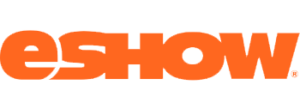Streamlining event registration and check-in processes is crucial for ensuring a smooth and successful event. Efficient registration and check-in not only enhance the attendee experience but also reduce administrative burdens and improve data accuracy. This blog post will highlight the best practices for event registration and check-in, emphasizing the benefits of eShow’s Registration Management System.
The Importance of Streamlined Registration and Check-In
Effective registration and check-in processes are vital for several reasons:
- First Impressions: The registration process is often the first point of contact attendees have with your event. A smooth, hassle-free experience sets a positive tone.
- Data Accuracy: Accurate registration data is essential for event planning, marketing, and post-event analysis.
- Time Efficiency: Streamlined processes save time for both attendees and event staff, reducing wait times and administrative tasks.
- Security: Efficient check-in processes help ensure that only registered attendees gain access to the event, enhancing security.
Best Practices for Event Registration
1. Simplify the Registration Process
A complicated registration process can deter potential attendees. Simplify the process by requiring only essential information and offering multiple registration options.
Example: Use eShow’s Registration Management System to create user-friendly registration forms that collect necessary data without overwhelming the registrant.
2. Automate Confirmation Emails
Automated confirmation emails provide attendees with immediate reassurance that their registration is complete. These emails should include event details, payment confirmation, and any necessary instructions.
Example: eShow’s platform can automatically send customized confirmation emails, reducing the workload on event staff and ensuring timely communication.
3. Registration Paths Based on Attendee Type
Create customized registration paths based on attendee types such as speakers, exhibitors, and general attendees. This personalization helps gather relevant information and improves the registration experience.
Example: Use eShow’s system to set up different registration workflows for various attendee types, ensuring that each group provides the necessary details pertinent to their role at the event.
Best Practices for Event Check-In
1. Use Digital Check-In Solutions
Digital check-in solutions, such as mobile apps and QR code scanning, streamline the check-in process and reduce wait times.
Example: eShow’s Mobile Event App enables digital check-in through QR code scanning, providing a fast and efficient entry process for attendees.
2. Implement Onsite Check-In Kiosks
Self-service kiosks allow attendees to check themselves in, freeing up staff to handle other tasks and reducing congestion at the check-in area.
Example: Set up eShow’s check-in kiosks to provide attendees with a quick and easy way to check in upon arrival.
3. Provide Real-Time Updates
Keeping attendees informed of any changes or updates in real-time enhances their experience and reduces confusion.
Example: Use eShow’s mobile app to send real-time notifications about session changes, speaker updates, or other important information.
4. Prepare for Onsite Registration and Badge Printing
Allow for onsite registration to accommodate last-minute attendees. Ensure that the process is as streamlined as possible to avoid long lines and delays. Effective onsite registration can significantly enhance the attendee experience, especially for those who register last minute or have changes to their registration details.
Example: eShow’s Registration Management System not only supports onsite registration but also goes a step further by providing dedicated onsite staff to assist with the registration process. This means that event organizers can rely on experienced professionals to handle last-minute issues, and ensure a smooth flow at registration desks. Additionally, eShow offers remote kiosks that can be strategically placed in satellite locations, allowing attendees to register or check in from various points of the main event venue. These kiosks are fully integrated with eShow’s system, enabling real-time updates and badge printing on the spot, further reducing wait times and enhancing convenience for attendees.
By leveraging eShow’s comprehensive onsite registration services, including professional support staff and remote kiosks, event organizers can ensure a seamless and efficient registration experience that meets the needs of all attendees, from early registrants to last-minute walk-ins.
5. Train Your Staff
Ensure that all event staff are well-trained in using the registration and check-in systems. This will help them assist attendees quickly and efficiently, resolving any issues that arise.
Example: Conduct training sessions using eShow’s support resources to familiarize your staff with the platform and its features. Utilize eShow’s available onsite support staff to help ensure your event runs smoothly.
The Benefits of eShow’s Registration Management System
eShow’s Registration Management System offers a comprehensive solution for streamlining registration and check-in processes. Key benefits include:
- Customization: Create customized registration forms and processes tailored to your event’s specific needs.
- Automation: Automate tasks such as confirmation emails, payment processing, and data integration.
- Integration: Seamlessly integrate with CRM systems, payment gateways, and other event management tools.
- Efficiency: Reduce wait times and administrative burdens with digital check-in solutions and onsite kiosks.
- Support: Access eShow’s extensive support resources for training and troubleshooting.
By implementing these best practices and leveraging eShow’s Registration Management System, you can ensure a smooth, efficient, and enjoyable experience for your attendees, from registration to check-in and beyond.For more information on how eShow’s Registration Management System can benefit your event, book a demo today.
